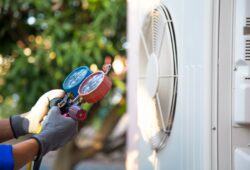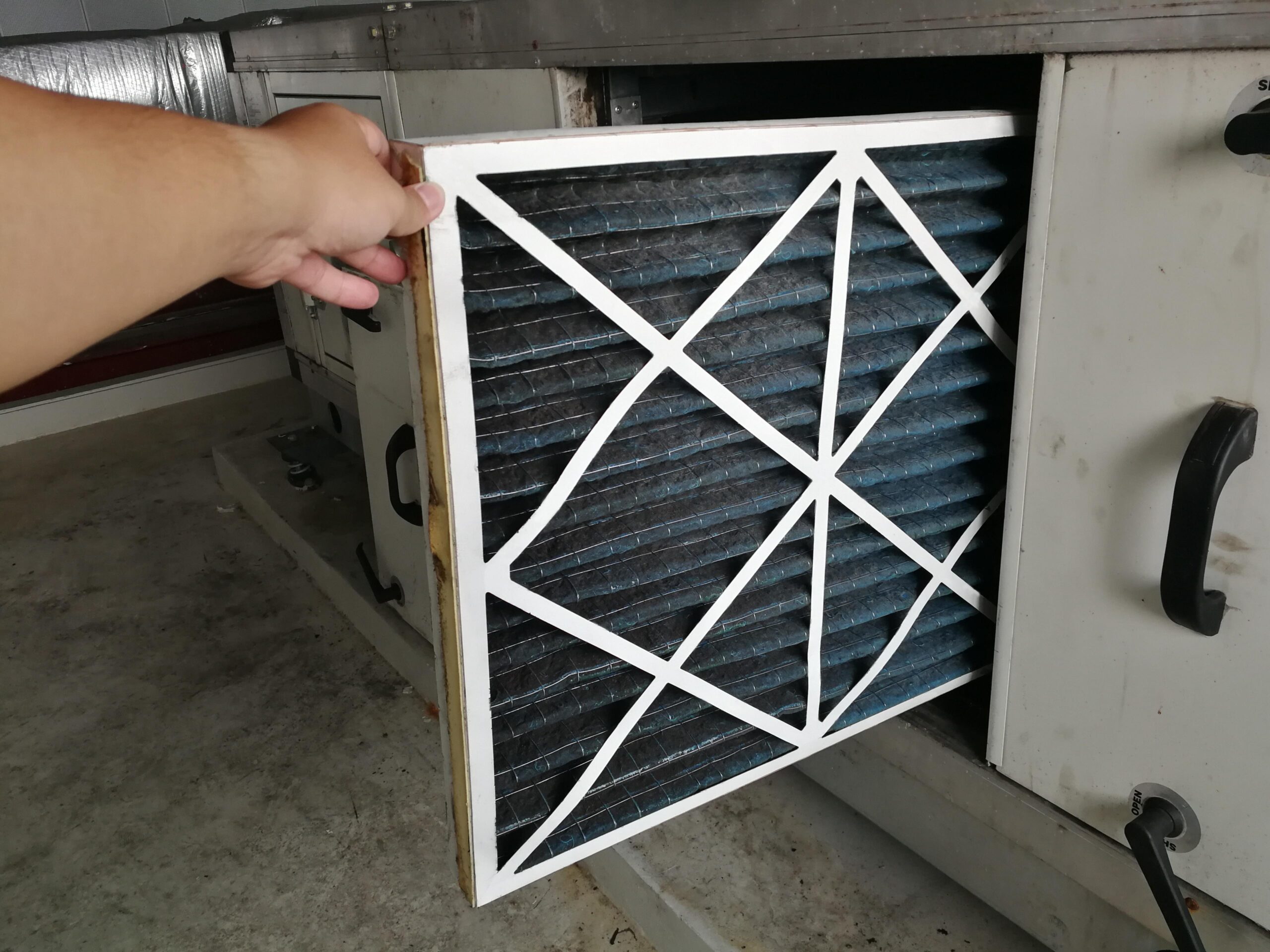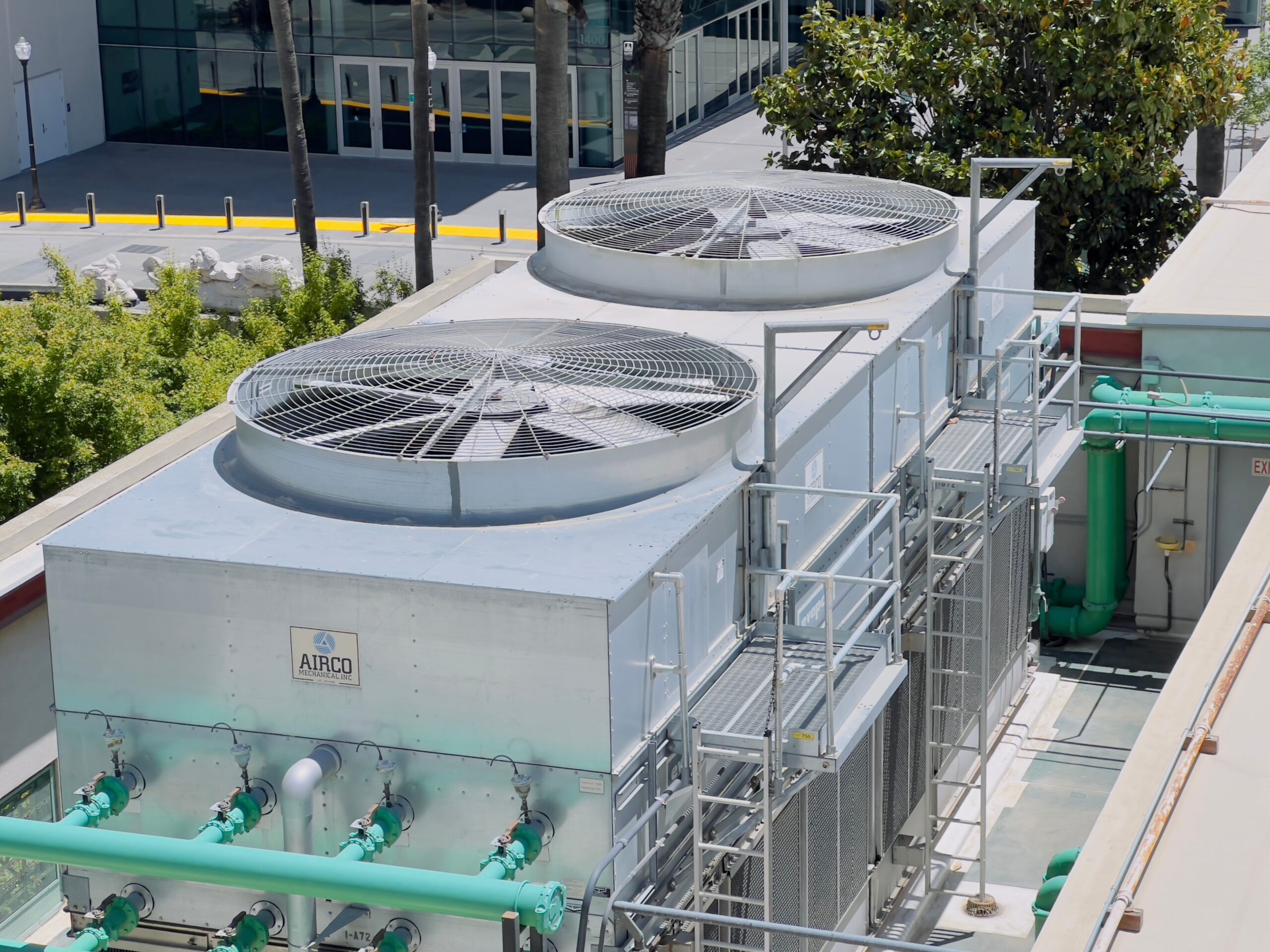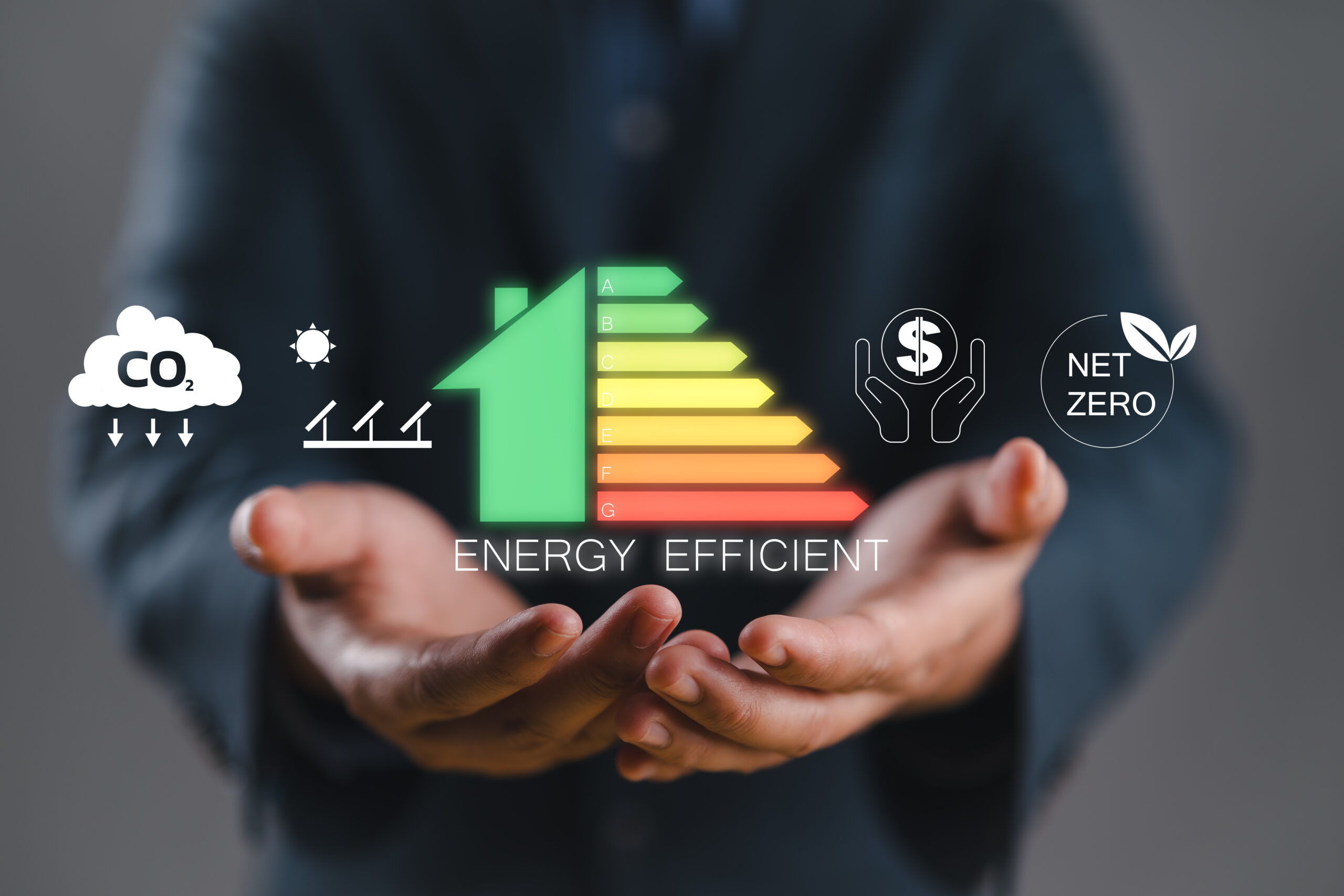Common HVAC Issues and How to Fix Them

You don’t need to be an HVAC expert to know when something is amiss with your heating and cooling system. Being aware of common HVAC issues can go a long way in helping you stay ahead of costly breakdowns and repairs. Keep reading to learn about five of the usual suspects and how to troubleshoot them.
5 Common HVAC Issues & How to Troubleshoot Them
Let’s discuss a few signs of HVAC problems plus a few strategies for fixing them.
1. Poor Airflow
Poor airflow is one of the most common HVAC issues and is often caused by dirty air filters. Over time, these filters accumulate dirt, dust, pet hair, and debris, restricting airflow and reducing the system’s efficiency. When airflow is restricted, your HVAC system has to work harder to distribute conditioned air, leading to uneven temperatures, poor indoor air quality, and higher energy costs.
- Symptoms: Reduced airflow from vents, rooms feeling stuffy or unevenly heated/cooled, and higher energy bills.
- Solution: Inspect and replace your air filters, typically every 1-3 months for pleated filters or every month for fiberglass filters, depending on usage and household conditions. Changing filters is an easy and inexpensive task that can significantly improve your HVAC system’s performance and extend its lifespan.
2. HVAC is Running but Not Cooling
If your HVAC system is on but not cooling as it should, there could be a few reasons.
Low Refrigerant Levels
Refrigerant is the lifeblood of your air conditioning system, responsible for absorbing and transferring heat. Leaking refrigerant does not pose a safety hazard, but if there’s not enough, your system won’t cool properly, causing inefficiency and higher energy usage.
Dirty or Blocked Condenser Unit
The outdoor condenser unit is responsible for dissipating heat from the refrigerant. If it’s clogged with dirt or debris or surrounded by plants, airflow can be restricted. This makes it harder for your system to cool, leading to higher energy bills and possibly compressor issues.
Frozen Evaporator Coils
The indoor evaporator coils are responsible for absorbing heat from the air inside your home. Dirty air filters or low refrigerant levels can cause the coils to freeze, hindering the heat exchange process and reducing your HVAC unit’s cooling capacity.
Electrical Issues
Faulty wiring, capacitor problems, or other electrical malfunctions can disrupt the operation of the HVAC system’s components, such as the compressor, fan motors, or control board. This can affect its cooling capabilities and potentially cause further damage if left unaddressed.
- Symptoms: The actual indoor temperature is 5+ degrees off from what your thermostat reads.
- Solution: For low refrigerant levels, contact a professional HVAC technician to inspect the system for leaks and recharge it with the correct amount of refrigerant.
- If you notice ice buildup on the evaporator coils, turn off the system and allow the coils to thaw completely, then address any airflow restrictions or refrigerant leaks before restarting the system.
- For electrical issues, it’s best to have a professional inspect the wiring, capacitors, and other components and replace any faulty parts to ensure safe and efficient operation.
3. Water Leaks from the HVAC Unit
High-efficiency air conditioners and furnaces produce condensation as part of the heating and cooling process, which is typically directed to drain pipes and expelled outside.
However, these pipes and drains can become clogged with dirt, debris, or algae growth, causing water to back up and leak from the unit. Blocked drain lines commonly cause issues for homeowners during the summer months. If a unit is installed in the attic, the leaks can cause ceiling damage. In the basement, leaks will cause wet floors, especially if the basement is finished. If left long-term, a slow leak can cause mildew, mold, and fungus growth, threatening occupant health.
- Symptoms: Puddles or moisture around the indoor unit, water stains on walls or ceilings, musty odors.
- Solution: To prevent water leaks, it’s crucial to keep the condensate drain lines clear. To effectively clear a blockage, the drain must be flushed and routine maintenance must be performed to prevent it from reclogging.
If the issue persists or you notice more leaks, it’s best to contact a professional HVAC technician right away to prevent further damage to your home or system.
4. System Turning “On” and “Off” Repeatedly (Short Cycling)
Instead of completing a complete cooling or heating cycle, your HVAC system may start up and shut down repeatedly after running for a short period.
This common HVAC issue, known as short cycling, can be severe and potentially damage the compressor or other components if left unchecked.
- Symptoms: Sometimes, the problem can be as simple as clogged air filters or a miscalibrated thermostat, causing the system to work harder than necessary and cycle on and off frequently. It’s also possible that your HVAC system is too powerful for your home’s size.
- Solution: To address short cycling, start by checking and replacing your air filters, and ensuring your thermostat is set correctly and not located near drafts or heat sources that could interfere with its readings.
If the issue persists, it’s best to bring in professional HVAC technicians to assess and measure your home’s heating and cooling needs accurately. They can identify the root cause and recommend the appropriate solution, whether it’s adjusting the thermostat settings, resizing your HVAC system, or resolving any refrigerant issues.
5. Strange Smells
Burning odors may indicate that the motor or electrical components have wiring issues or are overheating. If your air filters are clogged, the system can work harder and overheat, leading to burning smells. Mildew or musty smells are often related to moisture buildup, improper drainage, or water leaks within the system.
- Symptoms: Burning or musty smells emanating from the vents or the main unit itself.
- Solution: If you detect a burning smell, immediately turn off the HVAC system and check the air filters. Replace them if they appear dirty or clogged. Scheduling regular professional cleaning of your home’s ducts and HVAC unit is an excellent way to prevent these odors from occurring in the first place by removing accumulated dust, debris, and moisture.
Pro Tip: Regular HVAC system maintenance by a certified technician can help identify and address potential issues before they escalate into something worse.
Helping PA Homeowners Fix Common HVAC Issues for Over 50 Years
At Jack Lehr, we understand that some HVAC issues require the expertise of a professional technician. We take pride in our ability to diagnose and resolve various HVAC problems, ensuring your comfort and peace of mind throughout the year.
Don’t let common HVAC issues get the better of you—schedule your HVAC service today!
Questions or need more information?
Contact Us


We Treat You Like Family
When you choose Jack Lehr Heating Cooling & Electric, you’ll benefit from our:
When you choose Jack Lehr Heating Cooling & Electric, you’ll benefit from our:
- 50+ years of experience
- Our installation and service guarantees
- Top-of-the-line products
- Respect for your home or business
- Financing options
- And much more!



